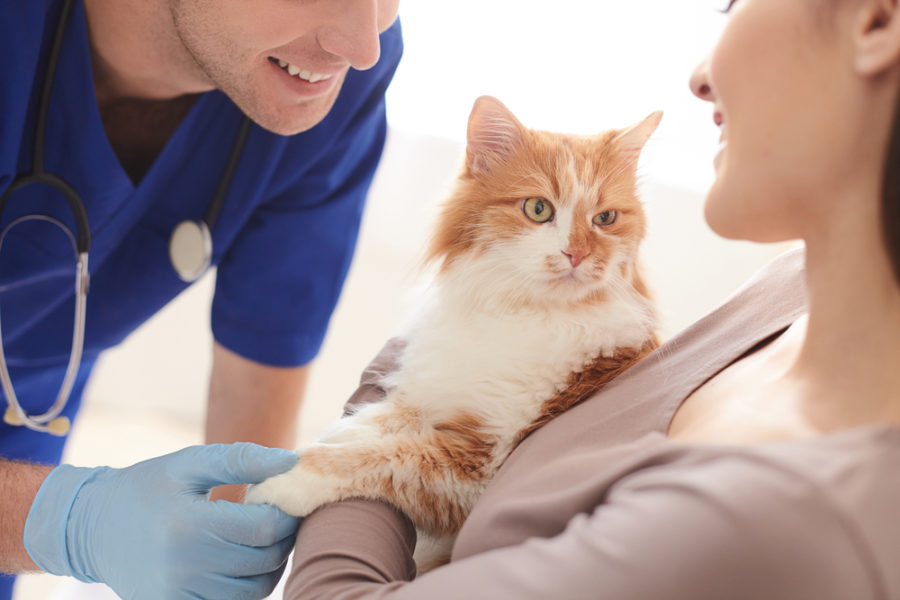The domestication of cats is an interesting journey, shaping their cognitive abilities and social behaviors. Unlike their solitary wild counterparts, domestic cats have adapted to live in social groups and form strong bonds with humans. This evolutionary shift has paved the way for complex social interactions and cognitive processes that we’re only beginning to understand.
Recent Advances in Feline Cognitive Research
Researchers are now applying methods similar to those used in canine studies to explore cat cognition. The primary focus has been on perception and social cognition, revealing intriguing insights into how cats process and interact with their environment. These studies are crucial for veterinarians to better understand feline behavior and mental health.
Stress, Aging, and Cognitive Changes in Cats
Like dogs, cats experience cognitive and behavioral changes associated with stress and aging. However, these changes are often subtle and gradual, making them easy to overlook or dismiss as natural aging. As veterinarians, it’s essential to be aware of these nuanced shifts to provide timely interventions and support for aging felines.
The Nutrition-Cognition Connection
While nutrition plays a fundamental role in cognitive development, function, and maintenance, research into its impact on feline cognition is still in its infancy. This presents an exciting opportunity for veterinary professionals to contribute to and stay informed about emerging studies in this field.
Cognitive Dysfunction Syndrome (CDS) in cats is influenced by various dietary factors. Neurotransmitters and hormones, regulated by dietary precursors, affect behavior. Tryptophan and tyrosine, precursors to serotonin and dopamine, play crucial roles in learning and emotion. The gut microbiome also impacts cognition through the brain-gut-microbiota axis.
Dietary management of CDS may include antioxidants, omega-3 fatty acids, and specific nutrients like arginine and B vitamins. Antioxidants help combat oxidative stress in the brain, while omega-3 fatty acids support brain function and reduce inflammation. Some studies have shown promising results with diets supplemented with fish oil, antioxidants, and other nutrients in improving cognitive function in aging cats.
Nutraceuticals like S-adenosyl-1-methionine (SAMe) and medium-chain triglycerides (MCTs) may also benefit feline cognitive function. However, more research is needed to determine optimal nutrient combinations and concentrations for managing CDS in cats, as well as to explore the role of the microbiome in feline cognition.
Assessing and Improving Feline Welfare
Animal welfare is closely tied to an animal’s ability to perform natural behaviors. For cats, this means considering their social, physical, and mental health holistically. As veterinarians, we must strive to understand feline social behavior, cognition, and physiology to provide environments and nutritional profiles that optimize their quality of life.
Future Research Directions
Many questions remain unanswered regardning feline cognitive function and the influence of various factors including nutrition. How do cats adapt their social behaviors to communicate with humans? What impact does diet have on cat cognition and behavior? How do lifetime experiences and dietary changes affect cognitive function as cats age? What cognitive differences exist between owned cats, community cats, and feral cats with varying levels of human interaction?
Implications for Veterinary Practice
The answers to these questions could revolutionize our approach to feline care. By gaining insights into optimal strategies for interacting with, feeding, and caring for cats, we can help strengthen the human-cat bond. This improved understanding may lead to more effective veterinary care, enhanced client education, and ultimately, a reduction in feline relinquishment.
As veterinarians, staying informed about these developments in feline cognition and nutrition research is crucial. It allows us to provide cutting-edge care, offer evidence-based advice to pet owners, and contribute to the growing body of knowledge in this field. By embracing this new frontier in veterinary science, we can play a pivotal role in enhancing the lives of our feline patients and fostering stronger bonds between cats and their human companions.







